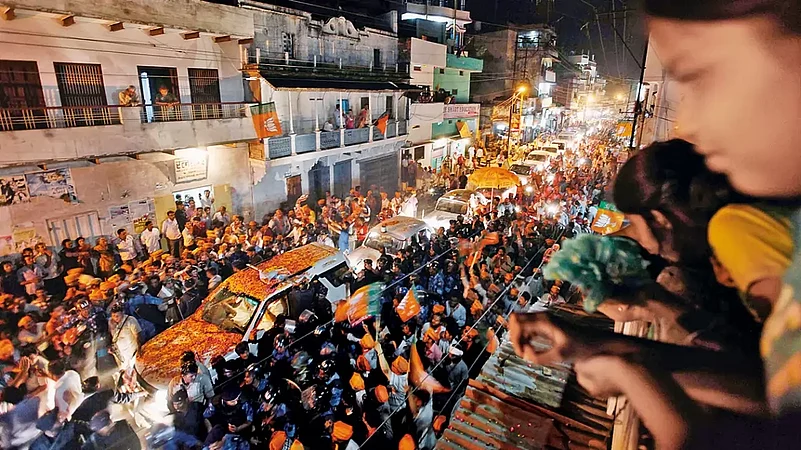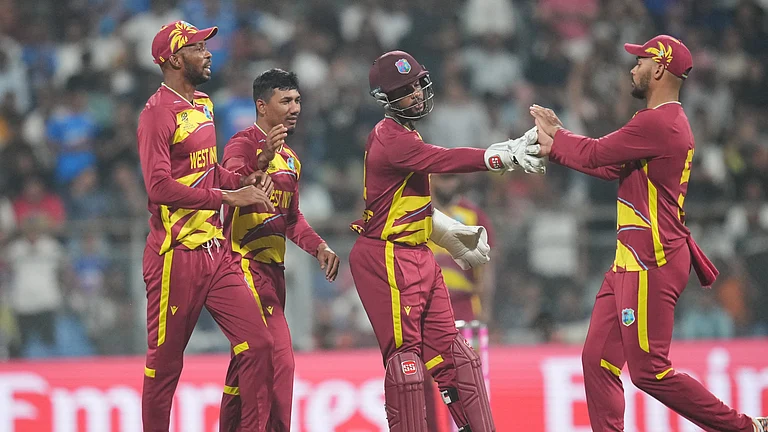Elections are considered a festival of democracy. India is now debating how often this festival should be held. There are several compelling reasons for simultaneous elections. First, our huge and ever-increasing population will make periodic elections unmanageable. Holding elections when the population was a hundred million is one thing, but holding multiple elections with one billion people will be a considerable challenge. Nowhere else in the world do a billion population go to exercise their adult franchise twice over in five years. If you include elections for local self-governing bodies, one billion people will vote three times over five years. Critics have argued that the cost is exaggerated, but their computations do not include the actual price and impact on the polity. And even if it’s manageable today, it will become unmanageable soon with our growing population.
Second, governance comes to a standstill when you have multiple elections. The Model Code of Conduct puts growth and development into a freeze. Security is diverted from their regular law and order work, teachers must go off work, and officials must stop working. Long-term projects come to a standstill. And it is challenging to pick up steam after a long pause. India cannot afford to go into such frequent freezes when it aspires to become a developed country.
Development and growth require the polity to adopt a far-sighted view on solving the country’s multiple challenges. Leaders must take a long-term view of the economy, but periodic elections push the government to take a short-term view. The incentive to take hard decisions simply disappears. Regular elections evaporate the risk-taking appetite of the government.
Third, while elections are a critical element of the democratic process, they also breed corruption. Elections require massive funding. For most constituencies in the south, an MP election involves an investment of over 100 crores. Handouts in the form of cash and alcohol are still a common practice. And upon getting elected, the candidate has to recover the investment by taking his cut from public funds.
Three legal issues are often raised against simultaneous elections, and it’s essential to deal with them.
Ratification by the State Legislative Assemblies
The first objection is that simultaneous elections require the ratification of half of the states. While simultaneous elections need an amendment to the Constitution, the argument is that it also requires ratification by half of the states. Neither the text nor the structure of the Constitution supports the requirement of ratification. Unlike other federal Constitutions, the amendment process in the Indian Constitution has a different structure. In a purely federal Constitution like the American Constitution, an amendment requires the ratification of three-fourths of the states. In contrast, the Indian Constitution requires state ratification only for the specified provisions. The Constitution also does not state that any amendment that affects the states requires state ratification.
These specified provisions that require ratification relate to the legislative powers of the state legislatures or representation of states in Parliament, the election of the President, and the powers of the Supreme Court or the High Court. The provisions dealing with elections or the terms of the legislatures are not one of them. Simultaneous elections do not implicate the state legislatures’ powers or any other provisions requiring ratification. Nonetheless, the Law Commission in 2018 has recommended that the ratification of half of the states be taken as an abundant caution, even though it is not required. Parliament has to take a call on this issue.
Does it Undermine the Democratic Process?
Critics of this proposal argue that holding simultaneous elections suspends the parliamentary process. Since parliamentary democracy is part of the basic structure of the Constitution, any amendment on simultaneous polls will not be valid as it undermines the basic structure of the Constitution. Critics assert that if the government in a state loses the majority, the proposal on simultaneous elections will lead to the government continuing in power till the next election despite lacking a majority.
This argument is without any basis. If the government loses the majority, elections will be held again, but the term of the re-elected government will be limited to the cycle of the next elections. There will likely be an odd case where there is only a year left after the premature dissolution of the state legislative assembly. Holding elections for only one year may not be appropriate, and President’s rule may have to be imposed for that limited term. This will require suitable amendments to the Constitution and the Representation of People Act.
The issue of simultaneous elections will also compel Parliament to deal with another critical issue—frequent holding of elections due to premature dissolution of the legislature. When voters have been given a mandate for five years, returning to the voters before that period frustrates that electoral mandate. Governance becomes a casualty when you go for early elections.
The Law Commission made two recommendations in 1999 and 2019 to avoid frequent elections due to early dissolution. Parliament should consider these while amending the Constitution:
- Any no-confidence motion in the legislature should be accompanied by a confidence motion that would bring about an alternate government. Several countries follow this model, including Germany. This would require an appropriate anti-defection law amendment to enable the legislators to vote irrespective of the parties’ whip. Elections should be held only as a last resort when a motion for a confidence motion also fails.
- There should be a gap of at least two years after introducing a no-confidence motion.
Term of Existing Legislatures
The more challenging issue is the alteration of the term of the existing legislative assemblies. Any introduction of simultaneous elections will require curtailment (or plausibly extension) of the term of some of the current state legislative assemblies. Any proposal for simultaneous elections will require a transitory provision requiring simultaneous elections at the national and state levels. The crucial question is whether any constitutional amendment truncating the period of the existing legislatures and pushing them to hold elections ahead of their term violates the basic structure by undermining the federal system of India.
Simultaneous elections are a new experiment in our constitutional polity and they will raise initial challenges. There are different ways to overcome this issue, which is something for the Kovind Committee to deliberate. These include:
- Option to be provided to the state legislative assemblies to dissolve their terms and
- For state legislative assemblies that have substantially finished their term, they will be dissolved, and elections will be held with the national election schedule
- For state legislative assemblies that have a significant term left, they will continue with their full-term
- For state legislative assemblies that have already finished their term before the national elections, they will be under the President’s rule, and elections will be held along with the national elections
Simultaneous elections are long overdue. We need to design our electoral system, which produces genuine leaders, for the country’s long-term growth.
(Views expressed are personal)
(This appeared in the print as 'A Long Overdue Move')
K Vivek Reddy is a practising senior advocate






















